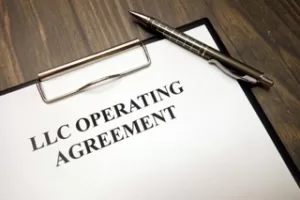It’s a situation that can cause stress, anxiety, and uncertainty. You’ve been renting a home or an apartment, and you discover that your landlord has sold the property to someone else. What will happen with your lease? Will you be forced to leave? Will your rent be raised?
This is a scenario that happens fairly often in the world of property, where ownership and management can change hands quickly and frequently. The first thing you need to do is relax, pull out your lease, and address the situation in an organized manner.
Will I be evicted?
First, your lease is a contract, which you signed with your landlord. It creates obligations on both parties, just as with any standard contract. Under most leases, your landlord has the duty to provide you with a livable space, for a defined period of time, at a specific price. There are instances where a tenant could be forced to move out after a sale to a new owner, particularly in the case of month-to-month renters, where a new owner is only required to give 30-days’ notice to such tenants. Another situation could be where your lease allows for such eviction in the case of a sale. These situations are rare, however, and under the vast majority of longer-term leases (those running 6 months or more), your new landlord is obligated to rent the space to you on the same terms expressed in your lease, for the duration of the period specified.
Will my rent be increased?
Can your new landlord raise prices? The answer is very similar to the one above: if you are a month-to-month renter, the new owner could declare new rates with the appropriate notice. Again, though, with most longer-term leases, this will not be permitted unless the lease expressly allows for such an increase. Your new landlord may try to convince you to sign a new agreement with higher rental rates. You should know that if your lease does not call for you to do this, you cannot be compelled to do so. The new landlord is obligated to honor the terms of your original lease, for its entire duration. You may, however, be offered an incentive to sign a new agreement. Weigh the options and determine if doing so would be in your best interest, but be aware that if you do so, you will be under a new lease agreement for a new term.
What happens to my security deposit?
Your security deposit is covered under Indiana law and, in most circumstances, under your lease. Technically, your landlord remains liable to you for your security deposit for one year even after he or she sells the property to another owner. However, there is an exception to this under Indiana law. If the new owner acknowledges that he or she has assumed responsibility for the security deposit, then the original landlord will be off the hook. In most cases, the purchaser’s assumption of responsibility will be spelled out in any typical property sale agreement, so more than likely your new landlord will have responsibility for the deposit. However, the new owner will still be under the same obligations to you regarding the security deposit as the original landlord, so you cannot be denied this money simply because there was a sale of the property. This means that the new owner is still responsible for returning your deposit to you, minus any legitimate deductions, no later than 45 days after the termination of your rental agreement.
What about my obligations to the new landlord?
Remember that a lease is two-sided, creating obligations for both the landlord and you. In the case of a sale to a new owner, you still have the same duty to maintain your property, pay on time, and adhere to the rules spelled out in your lease. Failure to do so could result in late fees, legal penalties, or eviction. Generally, your original landlord is required to provide you with written notice of a sale to a new owner in order to avoid continued liability. However, a lot goes on in the process of a property sale, and sometimes there are errors or oversights. Many renters in this situation get into trouble. They either do not have appropriate contact information for the new owner and miss or are late with payments, or they try to take advantage of the situation by refusing to pay the new owner. Save yourself the trouble and avoid these mistakes. If you get word that the apartment or home that you rent is under new ownership, be proactive and seek out the new owner so that you can confirm the ongoing validity of your lease, get accurate payment information, and ensure that there will not be any unexpected issues that arise from the transition.
Having the home or apartment that you rent come under new ownership should not be any cause for concern or stress. However, if you feel that you have been harmed as a result of such a sale, or you believe that your new landlord is not abiding by the law by honoring your lease agreement, here are some resources available to help you:
- Indiana Office of Housing and Urban Development
- Indiana Legal Services
- Fair Housing Center of Central Indiana
NOTE
This article primarily references Indiana law. Please check the laws of your local jurisdiction if you live in another state.
The articles in this blog are for informational purposes only. No attorney-client relationship is established through the publication of these articles.







